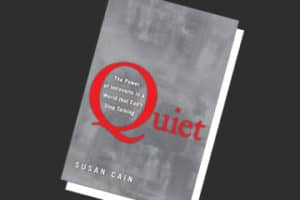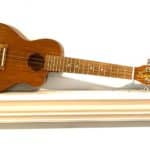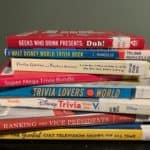
4
JunQuiet Power
 While perusing books to read on the Libby overdrive app, I came across a book that was simply titled Quiet by Susan Cain. In a sometimes hectic world, this seemed appealing. On closer look, its extended title was The Power of Introverts in a World That Can’t Stop Talking. Now it was even more appealing since I readily identify on the side of introversion.
While perusing books to read on the Libby overdrive app, I came across a book that was simply titled Quiet by Susan Cain. In a sometimes hectic world, this seemed appealing. On closer look, its extended title was The Power of Introverts in a World That Can’t Stop Talking. Now it was even more appealing since I readily identify on the side of introversion.
Susan Cain, a self-professed introvert herself, begins her book with the story of Rosa Parks who titled her own autobiography, Quiet Strength. Parks was said to be timid and shy, but to have the “courage of a lion.” Cain asks, “Why shouldn’t quiet be strong?” and “What else can quiet do that we don’t give it credit for?”
Reaching back again into history, Cain presents the relationship between President Franklin and Eleanor Roosevelt. As Cain puts it, the president was “bold and buoyant” and as comfortable with people as Eleanor was cautious. “He had bravado, and she had empathy. Each had strengths the other craved.”
Cain is quick to point out that one shouldn’t assume that all introverts are shy or unfriendly. Actually, most are not either one. Introverts do, however, need less stimulation than extroverts to function well. Introverts respond to things slowly and deliberately whereas extroverts are likely to tackle assignments quickly. In Cain’s words, “One third to one half of Americans are introverts in a country that is among the most extroverted of nations.”
Cain spent over 10 years training people from all walks of life in negotiation skills. She says in her book, Quiet, that this included helping them identify their own personalities and making the most of them. Many of these cases are discussed at length in her book.
Susan Cain went on to write a second book, Quiet Power: The Secret Strengths of Introverts. While her book, Quiet was meant for adults, this is a guide for children and teens. It focuses on school, friendship, family life and extracurriculars. She shares her own experiences of being an introverted child and teen and making her mark in her own quiet way.
At the end of Quiet Power, Cain has two chapters dedicated to hints for teachers and parents dealing with introverted students and children. This is very helpful for anyone concerned about a child or teen being too introverted.
Mari Olsen Laney, Psy.D, also chose to write about the world of introverts in The Introvert Advantage: How to Thrive in an Extrovert World. Interestingly, Dr. Laney made a career change in her 30’s from a children’s librarian to a psychotherapist. She claimed she wanted to work on a more personal level with people. It was then that she discovered and recognized that she, herself, was an introvert and that her husband was an extrovert. Reading both Laney and Cain’s books are especially helpful to any introvert who has a personal relationship with an extrovert.
Dr. Laney’s book is very extensive and covers a lot of ground, both personal and scientific. She gives many examples of cases she has had in her psychotherapy career.
The Introvert’s Edge: How the Quiet and Shy Can Outsell Anyone by Matthew Pollard addresses introverted people who are talented in a certain trade or discipline but lack the ability to sell their services because of their introversion.
Pollard, himself, like Laney and Cain, identifies as an introvert. He graduated high school with a sixth-grade reading level because of a visual disability and went to work for an engineer who was a real estate agent. Although, the engineer was good at his trade, his introverted personality was holding him back in sales. Pollard outlines in his book a simple process of connecting with clients to sell a person’s product regardless of whether the sales person is introverted or extroverted. At the same time, he recognizes that introverted people are more challenged in a sales career.
All these books include a test to see if the reader is an introvert or extrovert. They are fun to do, especially if one is not sure where one falls in the range. Personally, I never felt inferior having an introverted personality, so I wouldn’t approach these books as self-help books. I can see, though, how someone could. I did find them interesting and inspiring, and they validated my belief that a quiet and introspective person does not equate to being inferior or unaccomplished.
Susan Cain ends the introduction to Quiet by saying, “if there is one insight you take away from this book, I hope it’s a newfound sense of entitlement to be yourself.” Indeed.
Norma Logan is the Literacy Volunteer Coordinator at the Morrill Memorial Library in Norwood, MA. Look for her article in the June 3, 2021 issue of the Transcript and Bulletin.








